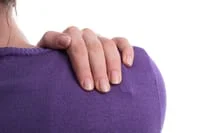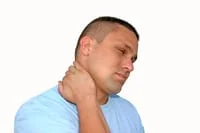What is Tourette Syndrome?
What are the symptoms?
Tics are classified as either simple or complex. Simple motor tics are sudden, brief, repetitive movements that involve a limited number of muscle groups. Some of the more common simple tics include eye blinking and other eye movements, fascial grimacing, shoulder shrugging, and head or shoulder jerking. Simple vocalizations might include repetitive throat- clearing, sniffing, or grunting sounds. Complex tics are distinct, coodinated patterns of movements involving several muscle groups. Complex motor tics might include facial grimacing combined with a head twist and a shoulder shrug. Other complex motor tics may actually appear purposeful, including sniffing or touching objects, hopping, jumping, bending, or twisting. Simple vocal tics may include throat- clearing, sniffing/ snorting, grunting, or barking. More complex vocal tics include words or phrases. Perhaps the most dramatic and disabling tics include motor movements that result in self-harm such as punching oneself in the face or vocal tics including symptoms that range from mild to severe, but most cases are mild. They can occur suddenly, and the length of time the last can vary. Tics may temporarily decrease with concentration or distraction. During times of stress, they may occur more often.
Many people with TS also have one or more of the following:
- Obessions
- Compulsions and ritualistic behaviors
- Attention deficit disorder with, or without hyperactivity (ADD or ADHD)
- Learning disabilities
- Difficulties with impulse control
- Sleep disorders





